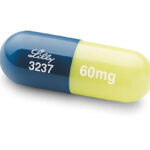Can You Take CBD Oil With Cymbalta?

Drug interaction is defined as the changes in a drug’s effects due to recent or concurrent use of another drug or drugs (drug-drug interactions), ingestion of food (drug-nutrient interactions), or ingestion of dietary supplements (dietary supplement-drug interactions).
Drug-drug interactions result when two or more drugs react with each other. Such drugs can be from a combination of prescription drugs and/or over-the-counter (OTC) medications. Drugs with a narrow therapeutic range (little difference between therapeutic and lethal dose) are more likely to face incidents of serious drug interactions.
What is CBD oil?
Cannabidiol (CBD) oil is a product that’s derived from cannabis. It’s a type of cannabinoid, which are the chemicals naturally found in marijuana plants. Even though it comes from marijuana plants, CBD doesn’t create a “high” effect or any form of intoxication — that’s caused by another cannabinoid, known as THC. This quality makes CBD an appealing option for those who are looking for relief from pain and other symptoms without the mind-altering effects of cannabis or other side effects related to some pharmaceutical drugs.
CBD oil is made by extracting CBD from the cannabis plant and then diluting it with a carrier oil like coconut oil or hemp seed oil. CBD can be found in a variety of products online and in stores, including dietary supplements, bath soaks, drinks, and food.
It continues to gain momentum in the health and wellness world, with some scientific studies finding that it may ease symptoms of conditions such as chronic pain and anxiety. CBD has shown promise in initial studies as a treatment for both depression and anxiety, and it may cause fewer side effects in some people.
The findings of research may help explain why CBD could be useful in treating depression. They indicate that, in most studies, CBD appears to have a positive interaction with serotonin receptors in the brain. Serotonin impacts a range of functions in the body, including a person’s emotional state and feelings of well-being or happiness. Keeping serotonin levels balanced is often a key therapy for people with depression.
What is Cymbalta?
Cymbalta is a brand of duloxetine, a selective serotonin, and norepinephrine reuptake inhibitor antidepressant (SSNRI). Duloxetine affects chemicals in the brain that may be unbalanced in people with depression. Cymbalta is used to treat major depressive disorder in adults. It is also used to treat general anxiety disorder in adults and children who are at least 7 years old.
Cymbalta is also used in adults to treat nerve pain caused by diabetes (diabetic neuropathy), or chronic muscle or joint pain (such as low back pain and osteoarthritis pain). Cymbalta is also used to treat fibromyalgia (a chronic pain disorder) in adults and children at least 13 years old.
Duloxetine comes as a delayed-release (releases the medication in the intestine to prevent break-down of the medication by stomach acids) capsule to take by mouth. When duloxetine is used to treat depression, it is usually taken once or twice a day with or without food.
Can You Take CBD Oil With Cymbalta?
No, using CBD oil and Cymbalta together may increase the risk of side effects such as dizziness, drowsiness, confusion, and difficulty concentrating. Some people, especially the elderly, may also experience impairment in thinking, judgment, and motor coordination.
In addition, CBD oil can interfere with the liver enzymes that break down Cymbalta, their interactions may lead to insufficient concentrations of the drug in the body and affect how the medication works. In severe cases, using CBD oil and Cymbalta together can lead to liver failure and or serotonin syndrome which may include symptoms such as confusion, hallucination, seizure, extreme changes in blood pressure, increased heart rate, fever, excessive sweating, shivering or shaking, blurred vision, muscle spasm or stiffness, tremor, incoordination, stomach cramp, nausea, vomiting, and diarrhea.





